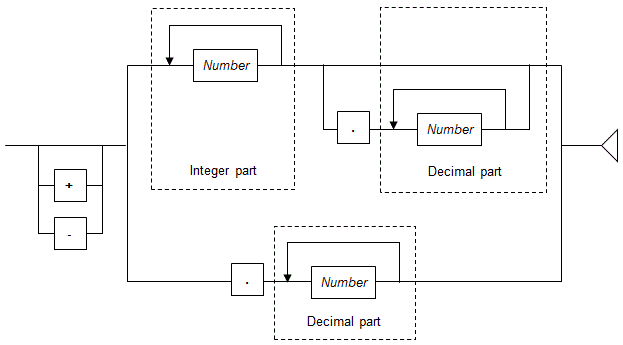Literals represent values that are directly used in a search expression without any computation involved.
Literals are used in various condition expressions.
The format used by literals is shown below.

The format used by string literals is shown below.

Specify single-byte characters or multi-byte characters (UTF-8 encoding).
Any spaces within quotation marks are treated as valid values, and the characters appear exactly as they have been specified.
If the backslash ("\") symbol precedes a character in a string literal, the character is replaced by an alternative character in accordance with the following table.
Character within a literal | Replacement character |
|---|---|
\s | Single-byte space |
\S | Double-byte space |
\n | Line feed |
\t | Horizontal tab |
\" | Quotation marks |
\\ | \ (backslash) |
Point
If the character immediately following the backslash ("\") is not listed in the above table, the replacement character is the character itself. For example, "\a" will be replaced by "a".
The format used by numeric literals is shown below.

Specify a digit from 0 through 9.
Note
When specifying a numeric literal in a condition expression:
There is no limit to the number of digits that can be specified.
Spaces cannot be specified in a numeric literal. The only exception is spaces contained in a prefix or suffix.
In all other cases:
The integer part and decimal places of a numeric literal can be up to a maximum of 18 digits. However, this excludes any 0 values at the beginning of the integer part.
Spaces cannot be specified in a numeric literal. The only exception is spaces contained in a prefix or suffix.